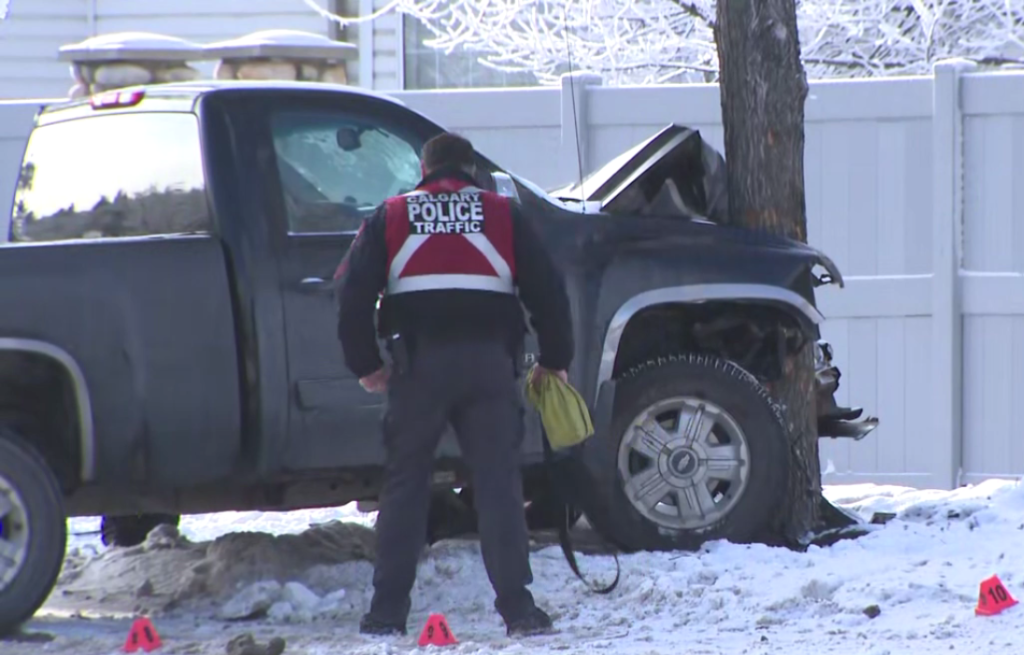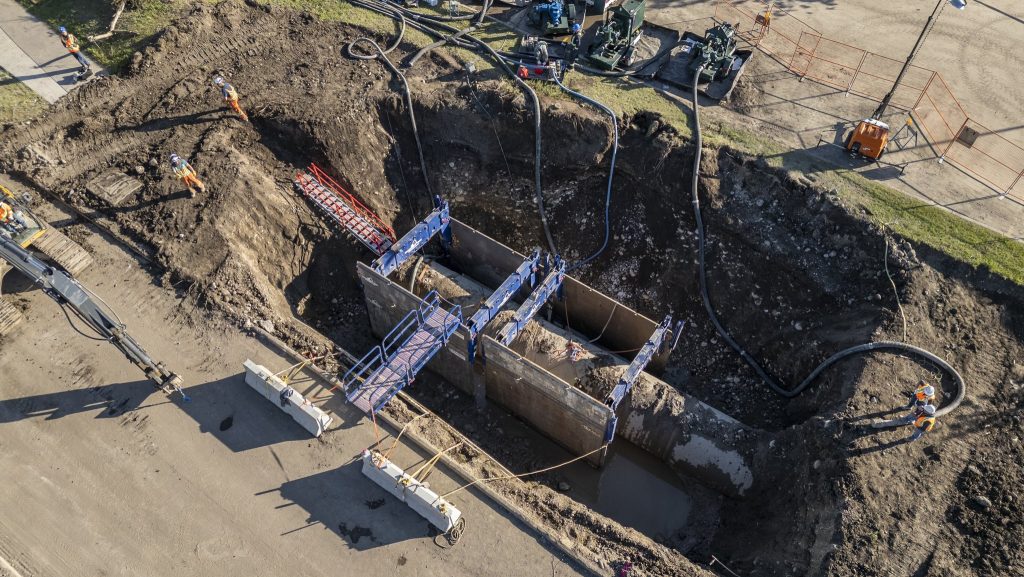‘Freedom Convoy’ leader challenged over assertion protesters were never told to leave

Posted Nov 4, 2022 4:37 am.
Last Updated Nov 4, 2022 4:37 pm.
Prominent “Freedom Convoy” organizer Tamara Lich has told the public inquiry into the federal government’s use of the Emergencies Act that when she yelled ‘hold the line’ while being arrested, she wasn’t trying to tell protesters to stay put – but rather to stay true to their values.
Under cross-examination on Friday, Lich said she was not responsible for how some might have interpreted her words, saying “I can’t speak for what other people think.”
Lich also claimed that she was never directly told to leave Ottawa during protests, adding that they would not have driven their trucks into downtown Ottawa if someone had just said no.
“If we would have been told that we couldn’t have driven up here, I don’t believe we would have. We would have found alternative places, I guess,” she said.
Ottawa police lawyer David Migicovsky showed Lich a police log entry that described a meeting where they did instruct her to leave, warning of potential enforcement and charges if they refused.
“I don’t recall them telling me to message that to others, or that I needed to leave,” said Lich. “It was suggested.” To which Migicovsky replied, “It seems to me your memory is selective.”
Paul Champ, the lawyer representing Ottawa residents and businesses, reminded the commission that GoFundMe shut down Lich’s fundraising campaign because the protest was deemed an unlawful occupation.
He said the city and the province then declared states of emergency.
In the meantime, local residents launched a lawsuit against the organizers and the court granted an injunction to stop protesters from honking truck horns at night.
“That wasn’t a message that maybe it was time to leave?” Champ asked Lich.
“We had a message too,” Lich replied. She told the commission that after hearing “heartbreaking” stories during the pandemic, she felt that the protesters’ message was more important.
She did say that she would have left if the court had ordered her to.
“My understanding was that as long as we were peaceful and complied with the order we were permitted to stay,” she said, in response to a question from her own lawyer, Brendan Miller.
The commission also heard from two protesters Friday who made a point of joining the protest after the Emergencies Act was invoked.
“I rushed back to Ottawa to do what I could to protect the peaceful citizens of the of the protests,” Chris Deering, a Canadian Armed Forces veteran, testified Friday.
He said he believed he was still entitled to be downtown Ottawa, though he knew police were warning people to leave.
“I’m a free citizen of this country. I’m a taxpayer. I’m a veteran. I’m a good person. And I felt I had the right to be there with my Canadian citizens to try to protect them,” he said.
Deering was arrested using force near the National War Memorial during a massive police operation on Feb. 18. He was later released without charges.
Maggie Hope Braun also returned to Ottawa after Feb. 14 and was also arrested, but not charged.
“I don’t believe that if a government passes a law, it means that we have to go against what we believe is right,” she testified. “We still have a right to peacefully protest and assemble.”
Both protesters spoke about how positive and peaceful their experience was in Ottawa before they were arrested.
In response, Emilie Taman, a lawyer representing Ottawa residents and businesses, played a 10 minute compilation of videos of loud horn honking, blocked streets, open fires, large collections of jerry cans of fuel and other scenes from the convoy protest.
Supporters in the hearing room gallery were heard softly laughing during the video, and one man made a honking gesture with his arm.
Friday’s hearings also included “Diagolon” founder Jeremy MacKenzie, who took part in the “Freedom Convoy” and testified from a correctional facility in Saskatchewan, where he is being held on charges unrelated to the protests.
Public Safety Minister Marco Mendicino flagged MacKenzie as a national security risk in February, saying people at the Coutts, Alta., border crossing blockade had “strong ties” to Diagolon, which he referred to as “a far-right extreme organization.”
In intelligence reports released at the public inquiry, the RCMP described Diagolon as a “militia-like network with members who are armed and preparing for violence” and having supporters “akin to accelerationism” who wanted to overthrow the government.
MacKenzie said many of his supporters are firearms enthusiasts, but argued police forces were citing unreliable information provided by the Canadian Anti-Hate Network.
“There is certainly not anything resembling a militia or anything to this extent,” he said.
He said he knew one of the people who was charged in relation to the protests in Coutts but otherwise had no connection to the Alberta blockades, and had little interaction with convoy organizers in Ottawa.
MacKenzie’s lawyer unsuccessfully applied to the commission earlier this week to allow him to testify in private or under a publication ban, citing upcoming court cases.
MacKenzie is facing assault and weapons charges in Saskatchewan and was charged with firearms offences in Nova Scotia in January. He’s also been charged with harassment and intimidation in March after an anti-mask protest outside the home of Nova Scotia’s chief medical officer of health.
Meanwhile, a new poll from Abacus Data about the use of the Emergencies Act shows 63 per cent of Canadians feel the federal government made the best choice it could under the circumstances with the remaining 37 per cent saying it was a bad choice.
Interestingly, every province has at least a slim majority in favour of the government’s decision, and nearly half of conservatives back the use of the Act.








